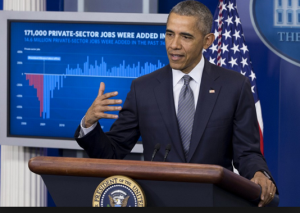This is a blog about work, where work fits into our world and where each of our jobs and roles fit into the story of who each of us is. Our culture encourages us to find meaning and intrinsic motivation in work. Addressing Amazon employees in Tennessee in 2013, then US President Barack Obama said that:
“Jobs are about more than just paying the bills. Jobs are about more than just statistics. We’ve never just defined having a job as having a paycheck here in America. A job is a source of pride, is a source of dignity. It’s the way you look after your family. It’s proof that you’re doing the right things and meeting your responsibilities and contributing to the fabric of your community and helping to build the country. That’s what a job is all about. It’s not just about a paycheck. It’s not just about paying the bills. It’s also about knowing that what you’re doing is important, that it counts.”

The right thing. When politicians connect work to personal values, such as dignity and purpose, or reinforce work as a moral pillar, we can be forgiven for questioning their motives. Governments need tax receipts and as few people receiving unemployment support as possible. At the same time, the financial rewards for working have ceased to increase in the way they did for successive generations and two incomes are now required to sustain the quality of life that one used provide. If you’re unwilling to augment the extrinsic monetary rewards for work, then working on people’s intrinsic motivations seems like a good bet.
Now how many people’s sense of self-worth is altered by Obama’s voice in their head is debatable. But through whatever process, it’s clear that many people do place a value on work over and above the number of dollars, pounds, Euro or Yen that it gets them. An obvious example is the prominence of work in casual conversation. How many questions do you usually exchange with a stranger before one or other asks “what do you do yourself”? Unacceptable answers include “I listen to music”, or “I walk my dog”, whereas “I’m a music critic” or “I have a dog-walking business” are fine. Even without mention of work, the meaning is understood, as is the ritual of getting some contextual handle on this unfamiliar person.
Even income itself has gained moralistic weight: the idea of being a ‘breadwinner’ who ‘provides’. In the final episode of Eddie Izzard’s “Marathon Man”, the comic takes a detour from one of his forty-three consecutive marathons around the UK, to visit a project supporting men with Alzheimer’s Disease. He speaks to another Eddie, who describes the classic early-onset Alzheimer’s symptoms: being unable to read a clock; and not being able to write. But worst of it all for Eddie was giving up his job:
“It’s boredom that gets you. You’re used to working, you can’t get a job. I thought my world had ended. Can you imagine it? Never work again? I’ve worked all my life.”
But work is changing. Ageing populations, family structure, the growing prominence of urban centres and the fight against climate change all have profound implications for how much work and what kinds of work our society will need from people. During her bid to succeed President Obama, Hillary Clinton got into hot water for saying she planned to “put a lot of coal miners and coal companies out of business”, in the context of a plan to move the US onto a renewable energy base. In Ireland, businessman and Apprentice host Bill Cullen experienced a similar backlash for suggesting in 2010 during the height of the country’s recession that young people should be willing to “work for nothing” in order to gain experience and competitive edge in a shrinking job market. In both instances, the context is important, though the reaction is equally informative. Changes in what people expect from society by way of occupation and role will not be welcome news to many. The challenge is more than economic: it’s a challenge to all those values and sense of what is the right thing to be doing with one’s days and with one’s life.
In future posts, we’ll be exploring how work influences wellbeing, plus taking a look at some of the trends which are reshaping the world of work before our eyes: casualisation; platform work; the gig economy; flexible working; extended working lives for older people; remote workspaces; and emotional labour. We have some ongoing projects here at Queen’s University Belfast which we look forward to telling you about also.
We hope for this to be an open collaboration between those of us for whom workplaces are a central research focus, as well as people working on policies and practice to make adapt their organisations to the challenges of 2019 and the century ahead. If there’s something you’d like us to cover, or if you’d like to contribute to this blog, please use the comments below to reach out – we’d love to hear from you.
And we’ll try and finish each post with a work-related song- take it away LunchMoney Lewis!